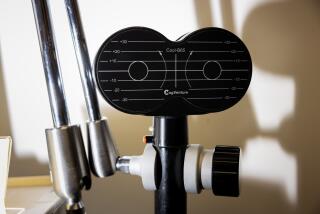Get over your bias against people with autism, scientist says
Doctors, researchers, therapists and the general public should reconsider their biases against people with autism, according to a psychiatrist/neuroscientist who studies the disorder.
You may not think you are biased against autistics, but you probably are, writes Dr. Laurent Mottron of the University of Montreal in Thursday’s edition of the journal Nature. After all, he was too – and he’s an expert in the field.
Like most people, if he found a difference between autistic people and members of the general population, he assumed the gap represented some sort of defect – even when there was no evidence to suggest that it was. Many of his colleagues continue to think this way, Mottron writes:
“For instance, researchers performing functional magnetic resonance imaging (fMRI) scans systematically report changes in the activation of some brain regions as deficits in the autistic group – rather than evidence simply of their alternative, yet sometimes successful, brain organization. … When autistics outperform others in certain tasks, their strengths are frequently viewed as compensatory of other deficits, even when no such deficit has been demonstrated empirically.”
The definition of autism itself is biased against people who have it. The condition is characterized by “a suite of negative characteristics,” Mottron writes, including problems with language and social interactions. “Autism’s many advantages are not part of the diagnostic criteria,” he notes.
The person who prompted the professor to change his thinking was Michelle Dawson, an autistic postal worker he met while both were being interviewed for a documentary about the condition. Later, he invited her to join his lab as a research assistant. Her single-mindedness, ability to discern patterns out of mountains of data and superior memory – all hallmarks of autism – made her perfectly suited to a career in science.
Though Dawson lacks a formal PhD, she has done enough reading and research to qualify for one, Mottron writes. The two have now collaborated on 13 research papers and several book chapters. Altogether, Mottron’s lab now includes eight people with autism, including students and research assistants.
Scientists are learning that compared with people in the general population, people with autism rely less on the verbal centers in their brains and more on the visual processing network. As a result, they outperform their neurologically typical peers on a variety of perception tasks, such as finding patterns “in a distracting environment” and “mentally manipulating complex three-dimensional shapes.” But since most intelligence tests rely heavily on language and verbal communications, people with autism tend to get low scores.
To Mottron, this is a flaw of the testing process, not of the autistic brain. “I no longer believe that intellectual disability is intrinsic to autism,” he writes.
He argues that intelligence in people with autism should be measured by nonverbal tests, such as Raven’s Matrices: “In measuring the intelligence of a person with a hearing impairment, we wouldn’t hesitate to eliminate components of the test that can’t be explained using sign language; why shouldn’t we do the same for autistics?”
Mottron writes of his concern that France and other countries have focused too much on training kids with autism to behave like typical kids instead of allowing them to make the most of their differently wired brains.
“People with autism need opportunities and support more than they need treatment,” he argues. “As a result, my research group and others believe that autism should be described and investigated as a variant within the human species. … They cannot be reduced to an error of nature that should be corrected.”
The entire commentary is online here.
Return to the Booster Shots blog.







